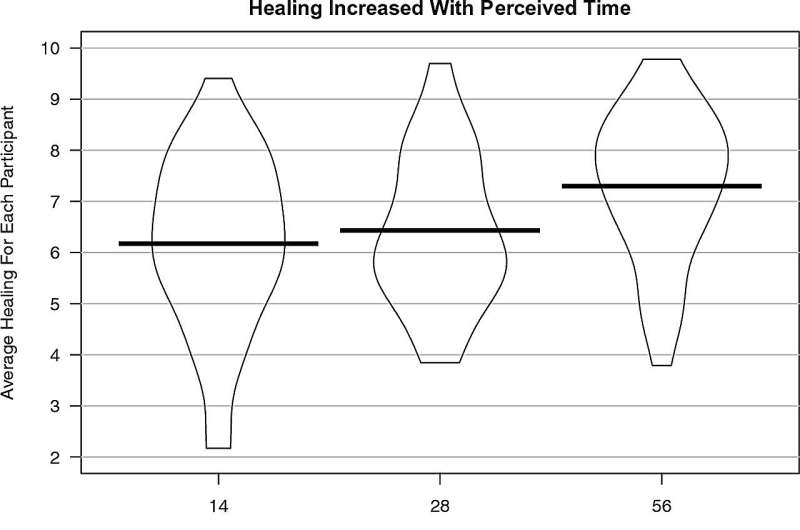This article has been reviewed according to Science X's editorial process and policies. Editors have highlighted the following attributes while ensuring the content's credibility:
fact-checked
peer-reviewed publication
trusted source
proofread
Perceived time has an actual effect on physical healing, study finds

Perceived time has a significant impact on the actual time it takes to heal physical wounds, according to new research by Harvard psychologists Peter Aungle and Ellen Langer.
Their study, published in Scientific Reports, challenges conventional beliefs about psychological influences on physical health. The findings suggest a broader range of psychological influences than is currently appreciated.
To complete their study, the authors used a standardized procedure to mildly wound volunteer subjects. Perceived time was then manipulated in the lab, with each study participant completing three experimental conditions: Slow Time (0.5x real-time), Normal Time (1x real-time), and Fast Time (2x real-time).
Wounds were documented as healing faster when participants believed more time had passed. Likewise, the healing process proved slower when less time was perceived to have gone by. The actual time elapsed was the same under all three conditions.
Further research is underway to understand better the underlying mechanisms and broader implications of these findings. In the meanwhile, the study makes a compelling case for more fully incorporating the idea of mind-body "unity" into subsequent inquiries on mind-body health effects. In particular, researchers are urged to consider a broader range of psychological influences on physical health.
Psychological influences on physical health are typically understood as influences on emotion (e.g., stress, inflammation, and immune function) and behavior (e.g., beliefs that promote healthy actions). This research suggests abstract beliefs about how our bodies also work directly shape physical health.
More information: Peter Aungle et al, Physical healing as a function of perceived time, Scientific Reports (2023). DOI: 10.1038/s41598-023-50009-3



















